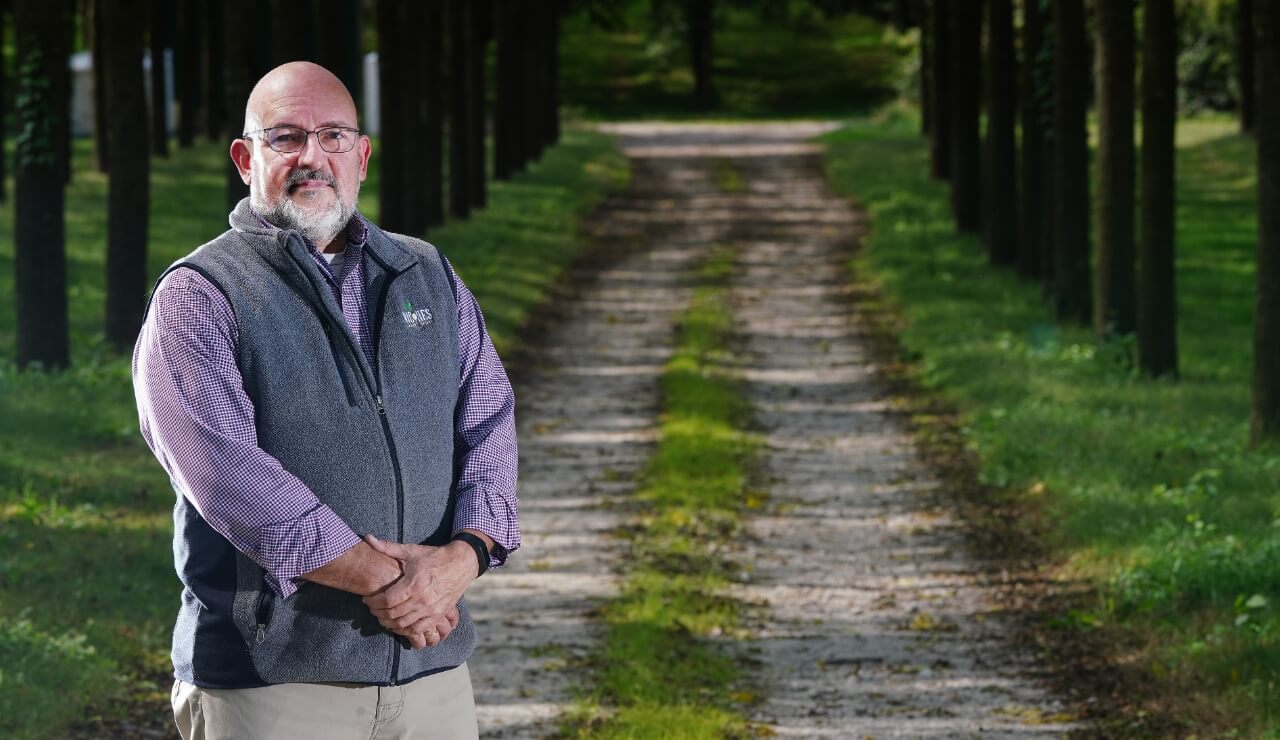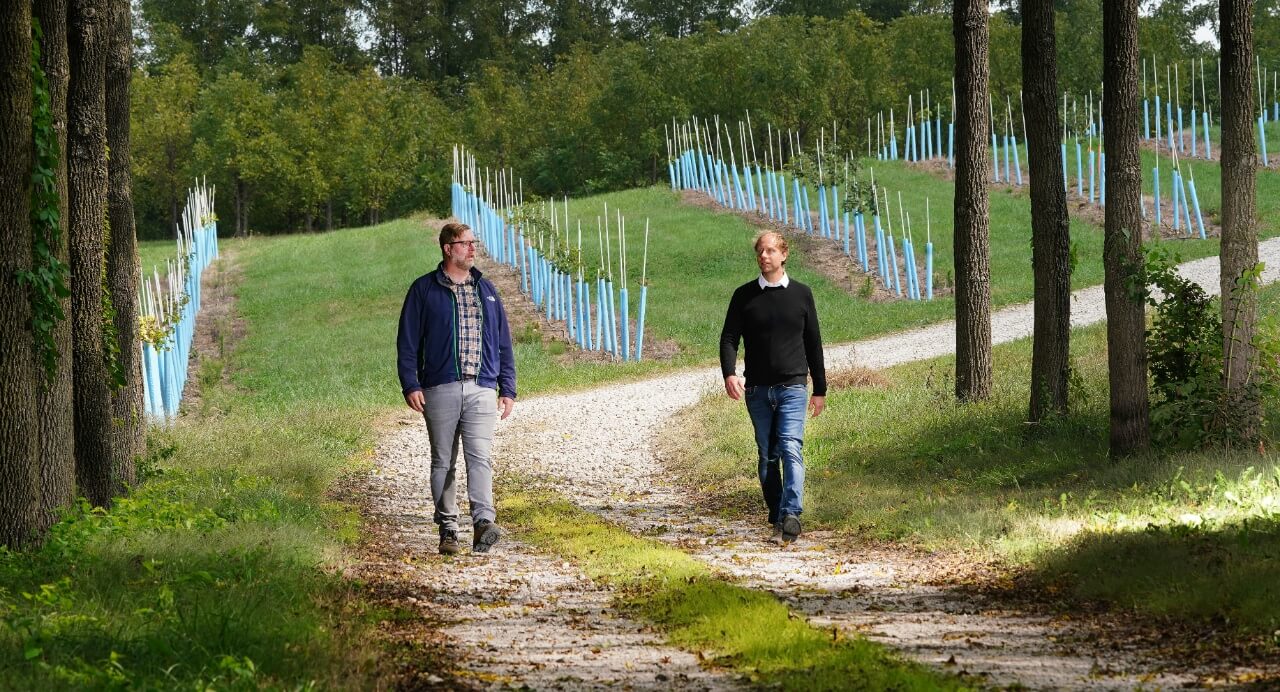Purdue pursues industry hardwood partnerships through NSF-backed center
When a company like West Point’s ArborAmerica has questions about optimal growing conditions for its hardwood forestry plantations, there haven’t traditionally been many places to turn. Much of the research on plantations has been done for the conifer and softwood industry. Hardwood work has focused on natural, forested land.
The Center for Advanced Forestry Systems (CAFS), a National Science Foundation-funded Industry/University Cooperative Research Center, offers the needed solution. The center, of which Purdue’s Hardwood Tree Improvement and Regeneration Center is a founding member, develops partnerships with forest-related companies to help solve pressing needs in their industry.
For ArborAmerica, that partnership resulted in developing a new slow-release nitrogen fertilizer formulation that is better utilized by the company’s walnut trees and is less likely to leach into nearby waters.
“We know how other crops respond to nitrogen fertilization. But if we’re going to spend money on that for our fine hardwood plantations, it’s a good thing to know what’s going to happen to that nitrogen after application, for environmental and economic reasons,” said Guillermo Pardillo ArborAmerica’s deputy CEO. “The results of this partnership allowed us to be more precise and more accurately trace our nitrogen applications.”

“We are now much more efficient with our nitrogen delivery than we were,” Pardillo said. “We’re tracing our nitrogen and saving 25 percent or applying that 25 percent at a time when the plants are actually using it. To have an approach to research that is aligned with the way we do things with advanced technologies and genetics has been invaluable.”
The research findings are then applicable for a wider range of industry or forest managers. Douglass Jacobs, Purdue’s Fred M. van Eck Professor of Forest Biology, is a site director for CAFS and said that the nitrogen data compiled during the project is instructive for walnut, loblolly pine and Douglas fir plantations.
“These projects may apply directly to our industry partners, but the questions we’re answering are applicable to the forestry industry as a whole. They’re not system-dependent,” Jacobs said. “These data are relevant regardless of whether you're managing pine in the south or walnut in Indiana or Spain.”

Purdue’s work in phases one and two of CAFS also included evaluation of crown ideotypes for black walnut clones and evaluation of the interactions of nitrogen and soil-water availability on black walnut growth and carbon allocation.
Phase three will include a more digital approach to understanding forest health. Scientists will use hyperspectral data, including the use of unmanned aerial vehicles (UAVs) and Light Detection and Ranging (LiDAR), to assess forest stress.
“We want to understand the ability of this technology to provide data from the scale of leaf to tree to a plot and to a landscape to assess tree health and characterize stress imposed by insects, pathogens and the environment,” Ginzel said. “If you can do that, you could recognize an issue that may be seriously detrimental to a forest, but that could also be mitigated with early detection and a good management plan.”
That’s important work for organizations like the Indiana Hardwood Lumbermen’s Association, which has long been an industry partner with Purdue, HTIRC and CAFS. IHLA’s executive director, Ray Moistner, said the research directly benefits the $10.5 billion hardwood industry in Indiana.
“Their work addresses critical issues around disease control, disease prevention and returning to forests valuable species thought to be extinct,” Moistner said. “With such an important and state-of-the-art research facility at Purdue, it’s incumbent upon us to support them. The financial commitment to be a partner isn’t small for an organization of our size, but we are big believers in CAFS.”






